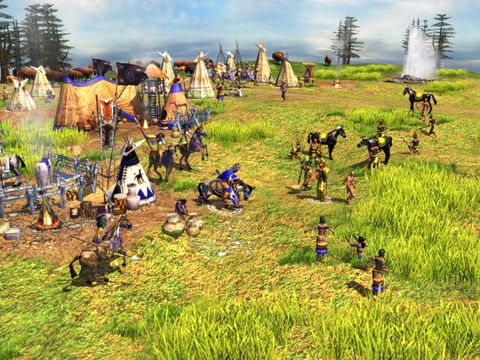Exploring the new world was one of Columbus' greatest feats, but it was the colonization of that land that brought about a new era in civilization. And it was that era that was chronicled in Ensemble's Age of Empires III as you took on the role of a mighty European power. Now it is time for the tables to turn as the balance shifts to three Native American tribes and you lead the WarChief to victory.
Each of the three new tribes, the Iroquois, the Sioux and the Aztecs bring a new style of play to the table rather than simply mimicking an existing power. The Iroquois will be the most familiar to existing players, as they have allied with the Americans and as such, use a few European units. The Sioux have the advantage of heavy cavalry and a maxed out population meter. Rather than worry about support, a Sioux player can immediately start building his war machine. Infantry is the name of the game for the Aztecs. They start out weak, but in the latter half of the game a skilled Aztec player can wreak some havoc.

The WarChief is the new leader unit, replacing the explorer from the original. Because the WarChief grows more powerful with time, players tend to be conservative with his use early on. Taking out an enemy WarChief is a great way to cripple an online opponent.

